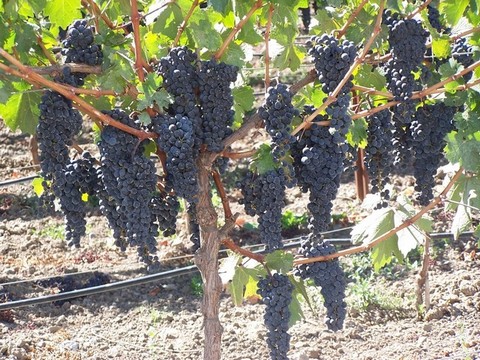


27th Sunday in Ordinary Time Year A - 4/10/2020 - Gospel: Mt 21: 33-43
Vineyard
It is rather hard to tell the true character of a person from a mere appearance observation. Through business exchange, hidden vices will surface, and we come to understand the inner life of a person. All three vineyard parables, happened in different contexts, and yet they all have something in common. They reveal vices of different kinds, namely: jealousy, deceit and covetousness. In the first parable of the vineyard Mt 20,1-16, the first group of workers got jealous against the last group of workers, who worked for less than an hour, and yet they received the same payment as the first ones, who worked all day long. In the second one Mt 21,28-32, the son who responded 'yes' to his father didn't follow through. This week the tenants used the violent approach to take over the ownership of the vineyard Mt 21,33-43. According to the prophet Isaiah 'The vineyard of the Lord is the House of Israel and the people of Judah' Is 5,7. God alone is the owner of the vineyard, and the heir, God's only Son; is Jesus. Everything went smoothly and the vineyard's production was fine. The problem was not with the grapes. The richness of the crop motivated the people, the tenants, to take over ownership of the land. According to the lease, we presume, the landowner had the full right to expect some return, each year, from his crops. Those tenants were not only failing to fulfil their obligation paying to the landlord what due to him, but they wanted to take over the ownership of the land by killing the owner's heir. Up to this point, the Chief Priests and the Elders believed they were the Temple leaders, not the tenants. When Jesus asked the question, 'What will he do to those tenants?'. They answered, 'He will bring those wretches to a wretched end and lease the vineyard to other tenantsv.41. This response makes us believe, the Temple leaders and Elders somehow unknowingly, condemned not anyone else, but themselves. Their self- centred pride caused them to misunderstand their own identity and purpose. Their own identity was that of the tenants; their offices were Temple leaders. Office bearer and personal identity are different things. The office a person bears changes from time to time, but not personal identity. The Chief Priest and Elders' purpose was to serve God's people. Instead of serving God they rejected God's Son, Jesus. Instead of serving God's people they made people's lives heavy burdens with strict rules and regulations. God demanded good fruits of holiness from His vineyard, not for God himself, but for God's people. They not only failed the duty of care, to deliver good fruit for God's people, they also failed to welcome what Jesus had to offer. The parable hinted there would be some form of punishment: 'the kingdom of God will be taken from you and given to a people who will produce its fruit' v.43. Human wickedness, no matter how clever it is, would be unable to thwart God's plan of salvation. Not honouring their promise, the tenants wanted to stop others from doing God's will. They killed the first group of servants, destroyed the second ones and finally they planned to kill the landlord's heir, Jesus. Rejecting Jesus meant rejecting what he has to offer- Heavenly blessing, salvation and eternal life. Because the chosen race had refused to embrace God's blessing; God's salvation will be given to others, we, the gentiles will be heirs of God's kingdom, becoming God's children, sisters and brothers in Christ. We give thanks to God for allowing us to become God's own people.
Written by Fr Vũđình Tường
St Francis Xavier Catholic Parish
Roman Catholic Archdiocese of Brisbane Australia
St Francis Xavier Catholic Parish
Roman Catholic Archdiocese of Brisbane Australia



